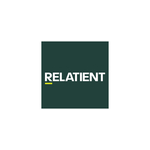Data Finds Intelligent Scheduling Linked to Improved Provider Utilization, Staff Efficiency

Relatient analysis shows significant operational improvements across provider organizations after intelligent scheduling solution adoption
ATLANTA–(BUSINESS WIRE)–#chat–Recent analysis of operating data shows healthcare organizations using an intelligent scheduling solution drive strong performance improvements in strategically important areas, including clinical utilization, patient satisfaction and preventing errors that impact administrative workloads. The analysis, released by Relatient, the leading patient scheduling platform, provides insight into how important intelligent scheduling is to a healthcare organization’s success, and specifically uncovers how critical this function is to specialty care providers. Further, the data shows that scheduling tools that use data-driven algorithms, such as Relatient’s Dash Schedule solution, automate administrative tasks and improve patient interactions in ways that traditional appointment booking tools do not.
As wait times continue to rise, especially for a patient trying to see a specialty physician, specialist healthcare organizations simultaneously struggle to ensure that providers schedules are accurate and capacity is properly utilized. Relatient’s analysis and insights point to guided, rules-based scheduling as a solution for this massive disconnect between patient demand and provider utilization. Specialty organizations using an intelligent scheduling solution have seen an average increase of 5-10% in physician utilization, with Gastroenterology, Orthopedic and Musculoskeletal, Urology and Multi-Specialty practices each maintaining between 87-98% physician utilization rates:
- 98% Gastro (GI and GE)
- 93% Orthopedic
- 88% Urology
- 87% Multi–Specialty
“Having the right, intelligent scheduling tools in place has been pivotal for not only our business operations but also patient care,” said Andrew Wade, CEO at OrthoSC. “Fewer empty appointment spots means that people can get care even faster. We’re able to respond more quickly to our community’s care needs while also growing our practice with our existing staff and resources.”
Another major disconnect between patients and providers is the way that patients make appointments. A recent survey found that 84% of provider organizations limit patients to only scheduling appointments through the front desk. Meanwhile, 61% of patients reported that they’ve skipped doctor appointments altogether due to challenges associated with scheduling, including being directed to schedule appointments via a traditional phone call. Relatient’s experience facilitating the appointment scheduling and management for over 50 million unique individuals in 2022 shows that organizations that provide a full self-service scheduling solution not only meet patient needs for ease-of-use and autonomy, but also drastically improve staff efficiency by taking tedious calendaring work off their plates:
- Organizations utilizing Dash for online self-scheduling have seen up to 20% of appointments being scheduled online, with strong annualized growth in both new and established patient adoption.
- Organizations using Dash for online self-scheduling see an average of 32% of appointments being scheduled outside of business hours.
“When consumers are demanding the ability to self-schedule, and administrators are increasingly burdened with new tasks and responsibilities, it just makes sense to transfer scheduling power into the hands of the patients. Traditional scheduling tools and even many native EHR capabilities don’t adequately account for complex and evolving provider needs and preferences,” said Jeff Gartland, CEO of Relatient. “It’s compelling to see how automating those rules within a tightly integrated scheduling tool has such a massive impact across all levels of care. Following this analysis, it’s clearer than ever that many challenges in healthcare are ubiquitous, but can also be solved with minimal disruption to a provider organization’s daily workflows.”
About Relatient, Inc.
Relatient, Inc., is the leading intelligent patient scheduling and engagement technology company that utilizes a data-led approach to improving access to care. Integrating with all leading EHR/PM systems, Relatient engages with over 50 million unique patients per year on behalf of provider groups and health systems across the U.S. Relatient’s intelligent self-scheduling, patient messaging, chat, digital registration and payment solutions drive operational efficiency, increased appointments, reduced no-shows, faster patient payments and improved patient satisfaction, all while supporting better health and care quality initiatives. For more information, visit: http://www.relatient.com.
Contacts
Media Contact:
Trent Freeman
Innsena for Relatient
Email: relatient@innsena.com


